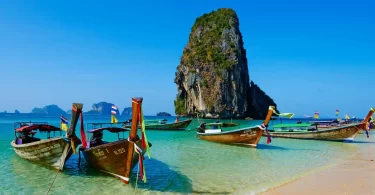- World Tourism Network President Dr. Peter Tarlow is a global expert in the travel and tourism industry and weighs in on having Kabul fall into the hands of the Taliban as a major worry for the global travel and tourism industry and World Tourism Network members in 128 countries.
- There can be little doubt that historians will debate the follies of both U.S. and European policies vis-à-vis Afghanistan for decades to come. Multiple nations have attempted to subdue Afghanistan, from the Ancient Chinese to the British, from the Russians to the Americans.
- In all cases, Afghanistan has lived up to its reputation as the “graveyard of empires”. The recent fall of Kabul is only the latest in Western failures and from a geo-political perspective, this defeat’s impact will be felt for years or decades to come.
It should not be surprising to anyone that the impact of events during the last few days, starting on August 14 might well also impact the world of tourism in ways not yet understood or assimilated by tourism industry officials.
The former president of Afghanistan took as much money as he could before he fled his country, and hours before the Taliban were able to stop him. He and his family are now safe in Abu Dhabi and were welcomed in the United Arab Emirates, a major travel and tourism destination on humanitarian grounds. This now completely destroys the fragile structure of security the western world had constructed in Afghanistan.
Yet despite the fact that there is much we will need to learn about the latest Afghan debacle, it is importance that political experts, public policy officials, and tourism scientists develop an understanding of how a relatively small and “poor” nation has played, and might in the future continue to play, such a major role on the world stage and also in world tourism.
To understand what the Kabul debacle means, we need to examine the country both from a geographic and historical perspective.
Real estate agents often cite the refrain that there are only three words that determine the value of a piece of property. These words are “location, location, and location” In other words in the world of real estate location is everything.
To a great extent we can say the same thing about nations.
Much of a nation’s destiny is determined by where it is located in the world. For example, the American nations, and the United States in particular, have had a huge advantage in that they are separated from Europe by an ocean.
The United States’ lack of hostile borders has meant that the US has had the luxury of what we might call “splendid isolation”.
Its natural borders, as distinct from many European nations that live with multiple borders in relatively close proximity, served not only to protect many of the American nations from military invasions but until the onset of Covid also from medical illnesses.
Although the late twentieth century and the twenty-first century have seen a decline in this geographic advantage due to mass tourism and the current U.S. administration’s lack of desire to protect the US southern border, the principle still holds true. Canada has had the advantage of having a long peaceful border with the US which has permitted Canada to expend minimal resources on military defense.
Afghanistan is a completely different situation. This landlocked nation is in the heart of what historians call the ‘”silk roads”.
To a great extent these are the lands in the heart of the world, and it is in these lands that much of the world’s economic history has occurred. Afghanistan not only sits in the middle of the silk roads, but the nation is also incredibly rich in mineral resources.
According to Peter Frankopan citing the US Geological survey reports that Afghanistan is rich in cooper, iron, mercury, and potash.
The nation also has major reserves on what is known as “rare earths”.
These “earth” include lithium, beryllium, niobium, and copper. With the fall of Kabul these rare minerals and valuable substances are now in the Taliban’s hands and these mineral have the potential to make the Taliban incredibly rich.
We should not be surprised if the Taliban do not use this economic windfall as a way to further their stated objective of creating a worldwide Islamic Califate.
Few Westerners and even fewer tourism officials understand the value of these rare earths and minerals and the fact that China also possesses large quantities of many of these substances. We use these substances in everything from computer production to talcum powder.
This control over rare and necessary minerals and rare earths means that a Taliban-Chinese alliance becomes a new challenge for western nations and by extension their tourism industries.
Kabul’s fall also has a political prices.







